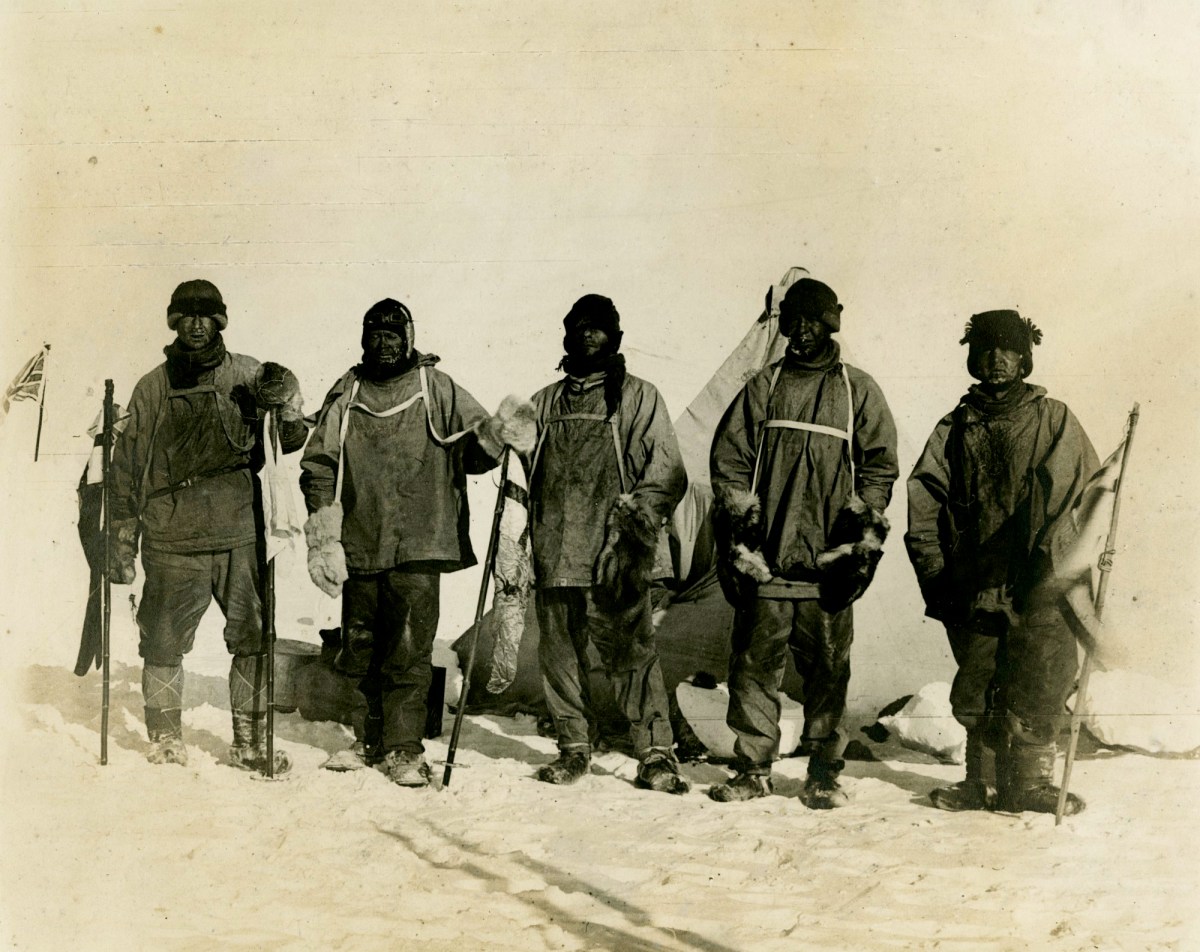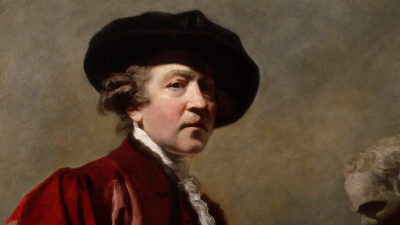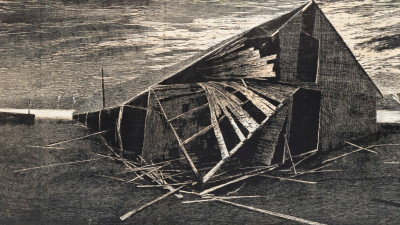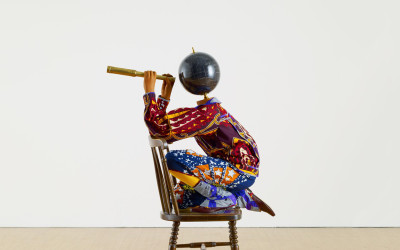
British Antarctic Expedition 1910-1912 and Herbert Ponting, The Camp at the South Pole, January 18 1912.
Silver gelatin photographic print. 341 mm x 411 mm. © Photo: Royal Academy of Arts, London.
This image is not available to download. To licence this image for commercial purposes, contact our Picture Library at picturelibrary@royalacademy.org.uk
The Camp at the South Pole, January 18 1912
From: British Antarctic Expedition 1910-1912 and From: Herbert Ponting
RA Collection: Art
On free display in Collection Gallery
This photograph shows Captain Robert Scott and his team on the day after they reached the South Pole. After a two-year expedition, they were beaten in the race to the South Pole by the Norwegian team led by Roald Amundsen. Coming second to their rivals was a huge blow to Scott and his team, and the disappointment and hardship of the journey can be seen in the men's dejected expressions and their weather-beaten faces.
Scott and his team left the South Pole and began the 862-mile journey back by foot on 19 January, the day after this photo was taken. Two of the men died from the conditions en route before Scott and his remaining two companions made camp for the last time, just 20 miles from safety. They died at the end of March 1912.
The film for this photo was found eight months later, in November 1912, in the campsite that was the men's final resting place, alongside the bodies and belongings of the explorers.
Scott's expedition to Antarctica had been organised from the University Buildings of Burlington House (6 Burlington Gardens, which the Royal Academy now occupies) through Lord Esher, Secretary to His Majesty's Office of Works.
The men in the photo are (left to right): Dr Edward Wilson, Captain Robert Scott, Petty Officer Edgar Evans, Captain Lawrence Oates, Lieutenant Henry Bowers.
Object details
341 mm x 411 mm
Associated works of art
1 results
Start exploring the RA Collection
- Explore art works, paint-smeared palettes, scribbled letters and more...
- Artists and architects have run the RA for 250 years.
Our Collection is a record of them.




